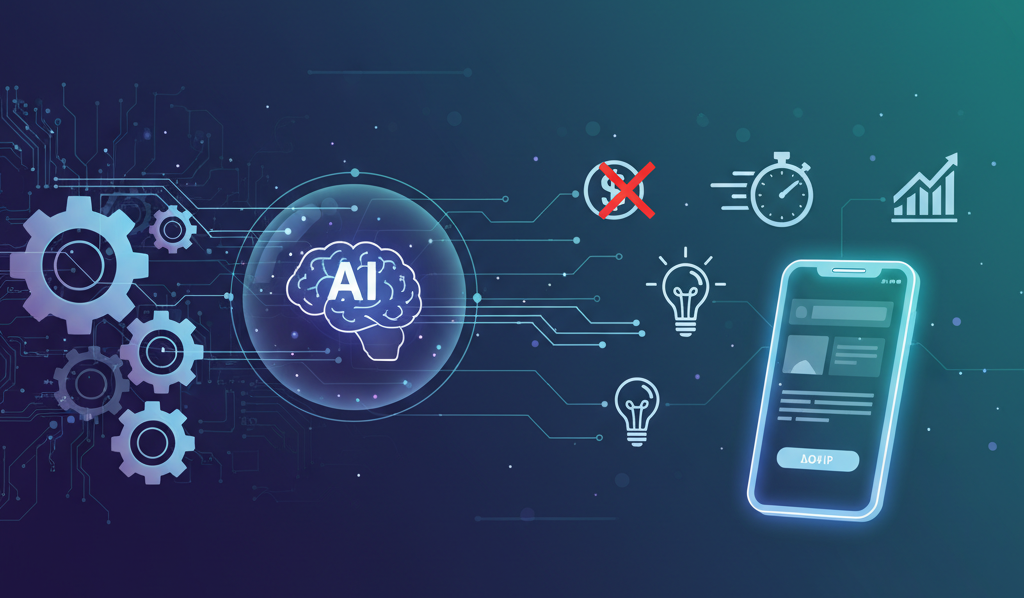AI-Powered MVPs: How Startups Can Validate Ideas Without Huge Budgets

Introduction
Launching a startup is exciting, but also risky. The reality is that 90% of startups fail, and one of the biggest reasons is spending too much time and money on a product that customers don’t want.
This is where AI-powered Minimum Viable Products (MVPs) come in. By combining lean development with artificial intelligence tools, startups can validate their ideas faster, cheaper, and smarter - without needing massive teams or big funding.
The Problem: Traditional MVPs Are Expensive and Slow
Let’s take a real-world example.
A founder wants to launch a marketplace for local home chefs. Normally, they would need to:
- Hire developers to build the platform.
- Spend months coding the backend and frontend.
- Invest thousands of dollars in hosting, payment integration, and UI design.
By the time the MVP is ready, they might have spent $30,000+ and 6 months - only to find out that customers don’t actually want the product.
For a bootstrapped founder, that’s a painful (and often fatal) mistake.
The Approach: AI-Powered MVPs
Instead of going the traditional route, startups today can leverage AI tools and automation to build lightweight MVPs that test demand before heavy investment.
Here’s how:
1. AI for Content & User Experience
- Use AI website builders (like Framer AI or Typedream) to create a landing page in hours.
- Generate copy, FAQs, and product descriptions with AI assistants.
- Test different value propositions quickly without hiring a full marketing team.
2. No-Code + AI Integrations
- Use n8n, Zapier, or Make to connect services without custom coding.
- Prototype workflows - signups, payments, or notifications - in days instead of months.
- Use AI-powered chatbots to simulate customer service or product features.
3. AI for Market Research
- Analyze competitors with AI-driven tools.
- Use AI surveys and customer feedback analysis to spot trends.
- Predict demand by testing small ad campaigns with AI-optimized targeting.
4. AI for Testing Product Concepts
- For an app idea: Use Figma + AI mockups to create interactive prototypes.
- For SaaS: Create a “fake door” test - a signup button that tracks interest before the actual product exists.
- For services: Use AI chatbots to handle early signups and automate initial customer interactions.
The Result: Faster Validation, Lower Risk
With this approach, our home chef marketplace founder could:
- Launch a simple landing page in 2 days.
- Collect 100+ email signups in a week with minimal ad spend.
- Use AI to handle customer queries automatically.
- Validate real demand before writing a single line of custom code.
Instead of burning months and thousands of dollars, they could prove the concept for under $500.
Key Benefits of AI-Powered MVPs
- Speed - Launch in days, not months.
- Cost Efficiency - Build prototypes without hiring a big dev team.
- Data-Driven Validation - Test with real customers before scaling.
- Scalability - Transition to custom development (WordPress, Laravel, Next.js) once demand is proven.
Final Thoughts
In 2025, startups no longer need massive budgets or large development teams to validate ideas. With AI-powered MVPs, you can launch faster, collect real feedback, and avoid wasting resources on products nobody wants.
Once your MVP shows traction, that’s when you can invest in a scalable, custom-built solution - whether that’s on WordPress, Laravel, or Next.js.
Call to Action
Are you a startup founder with an idea but unsure where to start? I help entrepreneurs design AI-powered MVPs that validate ideas fast and save thousands in development costs.
Let’s discuss your idea and turn it into a testable MVP today.
